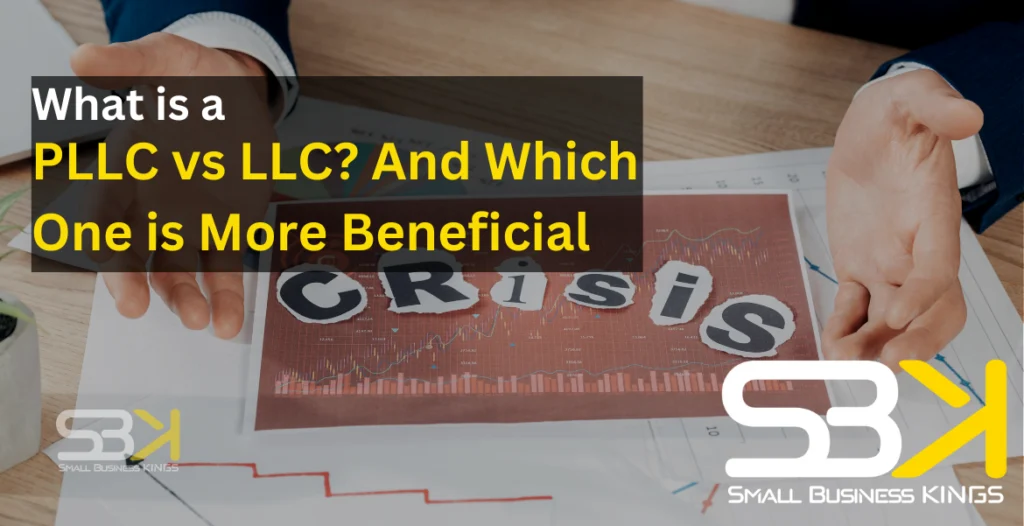In today’s business landscape, choosing the right legal structure is crucial for professionals and entrepreneurs alike.
Two common options, the PLLC (Professional Limited Liability Company) and the LLC (Limited Liability Company), offer distinct advantages and cater to different business needs.
Understanding the differences between them can significantly impact how you structure and protect your business.
What is a PLLC vs LLC?
Navigating the complexities of business formation requires a clear understanding of various legal entities. This article explores the distinctions between PLLCs and LLCs, highlighting their unique features, advantages, and considerations for professionals.
What is an LLC?
An LLC is a flexible business entity that provides limited liability protection to its owners, known as members. It combines aspects of partnerships and corporations, offering simplicity in management and tax flexibility.
Forming an LLC involves filing articles of organization with the state and drafting an operating agreement to outline member roles and operational guidelines.
This structure shields members’ personal assets from business liabilities, making it popular among small businesses and startups.
What is a PLLC?
A PLLC is specifically designed for licensed professionals such as doctors, lawyers, and accountants who require liability protection in their practice.
Similar to an LLC, a PLLC offers limited liability to its members, shielding personal assets from business debts and malpractice claims.
However, PLLCs are subject to additional state regulations and must comply with professional licensing requirements.
Key Differences Between PLLC and LLC
While both PLLCs and LLCs offer liability protection, they differ significantly in their formation requirements and operational scope.
PLLCs are restricted to licensed professionals, whereas LLCs accommodate various business activities beyond professional services. Taxation also varies, with PLLCs often subject to specific professional taxation rules in some states.
Which Should You Choose: PLLC or LLC?
The choice between a PLLC and an LLC depends on several factors, including the nature of your profession, liability concerns, and tax implications.
Professionals seeking enhanced liability protection tailored to their practice may opt for a PLLC, whereas entrepreneurs in diverse industries may find the flexibility of an LLC more suitable.
State-Specific Regulations
State laws play a crucial role in determining the formation and operation of PLLCs and LLCs. Requirements for professional licensure, taxation, and governance can vary significantly from one state to another, influencing the choice between these legal structures.
Financial Considerations
Forming a PLLC or LLC involves initial costs such as filing fees and attorney expenses. Ongoing maintenance costs, including annual reports and compliance fees, should also be considered. Tax implications vary based on the structure chosen and may impact financial planning for business owners.
Legal Considerations
LLCs offer greater operational flexibility compared to PLLCs, which are subject to stricter regulatory oversight due to professional licensing requirements. Understanding these legal distinctions is essential for compliance and risk management.
Advantages of PLLC
- Enhanced Liability Protection: Strong protection against personal liability for professional malpractice.
- Professional Credibility: Demonstrates adherence to specific licensing and regulatory standards.
- Tax Benefits: Potential for specialized tax treatments in some states.
- Flexible Management: Allows customizable management structures tailored to professional practices.
Disadvantages of PLLC
- Limited Eligibility: Restricted to licensed professionals, excluding non-professional businesses.
- Regulatory Compliance: Requires strict adherence to state regulations and professional licensing requirements.
Advantages of LLC
- Versatility: Accommodates diverse industries and business activities beyond professional services.
- Simple Management: Features a straightforward management structure with flexible operational options.
- Tax Efficiency: Benefits from pass-through taxation, avoiding double taxation on profits.
- Asset Protection: Provides limited liability protection for personal assets.
Disadvantages of LLC
- Limited Professional Protection: May not offer specific safeguards against professional malpractice claims.
- State-Specific Regulations: Must comply with varying state laws on formation, operation, and taxation.
FAQs
- What are the main differences between PLLC and LLC?
PLLCs are designed for licensed professionals and offer specific liability protection against malpractice claims, whereas LLCs cater to a broader range of business activities with flexible management and tax options. - Can any profession form a PLLC?
No, PLLCs are typically reserved for licensed professionals such as doctors, lawyers, and accountants who require specialized liability protection in their practice. - Are PLLCs taxed differently from LLCs?
PLLCs may be subject to specific taxation rules for professionals in some states, while LLCs have more flexibility in choosing their tax structure, including options for pass-through taxation. - How do state regulations impact the choice between PLLC and LLC?
State laws dictate the formation requirements, licensing obligations, and operational guidelines for PLLCs and LLCs, influencing the suitability of each structure based on location. - What are the initial costs involved in forming a PLLC or LLC?
Initial costs include state filing fees, attorney expenses for drafting documents, and potential licensing fees for PLLCs. Ongoing maintenance costs such as annual reports and compliance fees should also be budgeted.


